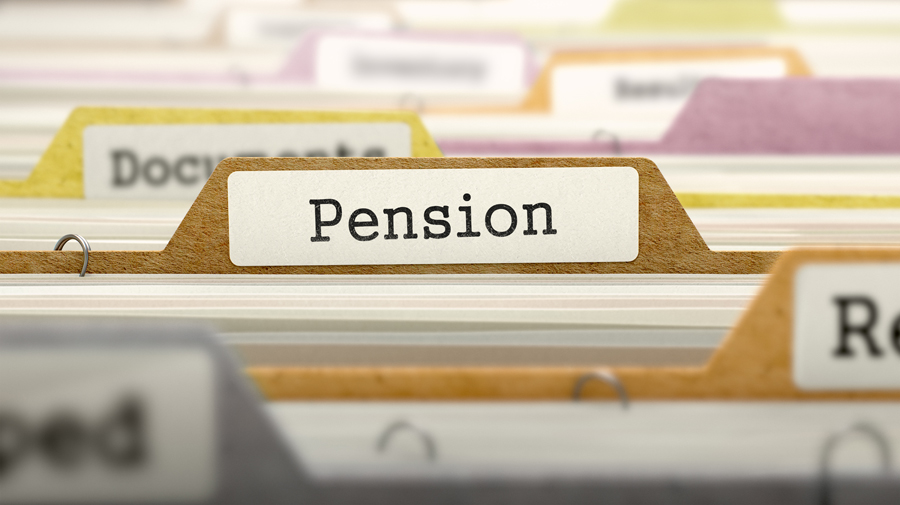Are expats eligible for a state pension in the UK? – that will be the topic of today’s article.
Before introducing this article, if you are interested in our core services which are expat financial, insurance and mortgages, you can contact me here.
The best time to consider your financial situation is when you are moving to a new country.
Introduction
Great Britain is in the top 5 most developed economies in the world, which directly affects the high paying capacity of the population, social security, a stable financial and political situation in society. United Kingdom provides different types of job opportunities for both young and senior professionals. This will give you a chance to build your life, study, do business, and after retire.
The UK is recognized as one of the top ten countries for doing business. The government actively supports startups and implements a number of government programs that will help you build your dream company. A huge amount of investment is poured into the UK every year, and the state itself attracts investors and startups with one of the largest markets on the planet.

Every large city has a well-developed infrastructure, from parks and squares, playgrounds to clean and tidy streets. Getting around the UK is easy with public transport. Buses, trams, trains and metro are affordable. In some large cities, people do not drive a car because they simply do not see the need for it. It is so easy and profitable to use public transport. Of course, in small towns and villages, transport is not always at the same level as in large centers, but the overall picture in the country is very positive.
The UK is close to continental Europe and this makes it a good starting point for travel. It is enough to take a plane and in a couple of hours, you can visit any European town.
Great Britain is still a welfare state, the policy of which is primarily aimed at maintaining and improving the quality of life of residents, regardless of their capabilities. This means tax breaks, discounts, and even sometimes full coverage of expenses in case of illness, for families with children, when expensive medications or surgeries or permanent care are needed, when a job is lost, and many many other social benefits and government assistance.
Let’s now see how expats can retire in the UK and see if they are eligible for the status of retiree in one of the developed countries.
Retiring in the UK

If you live and work in the UK, learning about how pensions work can help you plan a safe UK retirement.
The UK pension system traditionally ranks high in the world. However, most of these changes have resulted from recent reforms; New UK pension rules include automatic enrollment in workplace pension schemes. The statutory retirement age in the UK has gradually increased for both men and women.
The new UK government pension provides sufficient retirement income and a decent quality of life for those planning to retire in the UK. You should also consider whether UK inheritance laws and taxes apply to your assets and retirement savings.
The UK government has a public pension system in which those who have worked in the UK and have contributed to National Insurance (NI) – a tax on your income – receive regular payments to fund their pension.
You can start receiving your state pension when you reach your state retirement age. This age has gradually increased over the past few years and will continue to grow. When you are considered to have reached the state retirement age, this will depend on when you were born.
Individuals can supplement their pension with workplace pensions and private pension investments.
The first type of pension is usually automatically assigned by your employer. Automatic registration has been mandatory for all employers since 2017. Previously, employees could participate in workplace retirement schemes, but now they will have the option to opt out.
This way is available to every person who works with National Insurance Contributions (NICs) of the UK. Foreign nationals who do not intend to retire in the UK may be subject to different retirement rules.
To qualify for a UK pension you must live and work in the UK and have a UK National Insurance number.
UK citizens are issued an NI shortly before their 16th birthday. Foreign nationals must apply for one when entering the UK. Learn more about getting an NI number.
In addition to having a valid NI number, residents must also pay a NIC for at least 10 years.
Keep in mind that NICs are only withdrawn from you if you earn above a certain threshold; this threshold is currently £ 116 per week. If you are on a low income, you can volunteer to contribute to NI to make sure you qualify.
It is also possible to get national insurance loans instead of paying premiums. You will get them if you are applying for benefits such as Unemployment Insurance Benefit and Child Benefit, or if you are receiving maternity benefits.
As of November 2018, the state retirement age is 65 years. In October 2020, it will increase to 66 years, and in 2028 – to 67 years.
The legal age of retirement in the UK is undergoing changes to steadily bring the retirement age of women closer to that of men. Initially, for men born before April 6, 1945, and women born before April 6, 1950, the retirement age was 65 and 60 years, respectively.
In the period from 2037 to 2039, the state retirement age will increase to 68 years.
The default retirement age (forced retirement) no longer exists, which means you can work as long as you want. If you decide to continue working after reaching state retirement age, you can postpone the payment of your state pension. This increases your pension entitlements.
In the UK, you must apply for a pension; postpone, just don’t apply for retirement.
You can find out your UK retirement age using the government retirement calculator or view a list of retirement ages for the coming years. Read more about the new pension conditions.
If you have a work or private pension, you may be able to access funds at an earlier age than the state pension. Some allow you to collect money saved at age 55. Please check with your supplier as they may differ.
To receive a full pension, the pension rules require 35 years of insurance coverage; if your contributions are less than this, you will receive a prorated pension amount based on your pension contributions (assuming more than 10 years).
For those who have not lived or worked in the UK permanently, it does not take 10 consecutive years to be eligible for a pension. If you move abroad and return to the UK, you can still receive your pension 10 consecutive years.
If you experience any gaps in your network interfaces in the past six years, you can purchase voluntary Class 3 contributions to fill those gaps. After that, you can claim the majority of your state pension.
What is the UK state pension?

For those who have reached national retirement age on or after 6 April 2016, there is a “new” state pension in the UK. You can find out more about the new state pension at GOV.UK.
As already mentioned, you need 35 qualifying years of National Insurance Contribution (NIC) to receive the full amount (however, you will be able to get the prorated amount if you have at least 10 qualifying years).
If you have had a UK NIC less than 10 years old, you may be able to use your overseas social security contributions to cover the 10 qualifying years required to receive any new government pension.
This is most likely if you have lived or worked in the European Economic Area (EEA), Switzerland, or some countries that have a social security agreement with the UK. You can only qualify for the UK government pension if you have paid or received UK National Insurance (NIC) contributions, which are UK social security contributions.
If you are eligible for a government pension in the UK, you usually cannot receive it until you reach the age of government pension. You can determine when you will reach state retirement age using the calculator on the GOV.UK website.
Pension rates and contributions

Those eligible for a full government pension can expect to receive around £ 168.60 per week or £ 8,767.20 during the 2019/20 tax year. The rate increases every year.
Your final UK pension depends on your public insurance record. You can get less than this amount if you have not made contributions in 35 years.
Your total pension contributions are calculated based on a number of factors that determine the size of your pension. Low-income individuals or those receiving national insurance loans receive government insurance to ensure that there are no gaps in their national insurance records.
You can get an estimate of your UK pension and information on how to increase it. The UK government also offers a pension calculator to help you estimate your UK pension.
The new UK pension operates on a triple lock system. This means that every year it increases, whichever is greater:
- earnings – based on the average percentage increase in wages
- prices – based on the percentage of price increases or the consumer price index (CPI) measured in September each year.
- 2.5%
If you choose to work after the state retirement age, your retirement rate increases by 1% for every five weeks you save, up to 10.4% for every full year. When you carry over your full government pension for a year, your benefits will increase by £ 142.64 per week in 2019/2020.
The supplementary pension is paid along with your regular pension. In addition, if you continue to work, you generally will not pay government insurance after you reach retirement age. This does not apply to self-employed workers who meet Class 4 requirements.
However, you will still have to pay income tax if your total income exceeds your tax-free allowance (the amount of income you can receive before you pay tax). In 2019/20, that’s £ 12,500 per year.
Can an expat qualify for a UK government pension if he/she is retiring outside the UK?
Yes – if you are eligible for a government pension in the UK, it can be paid to you in a country outside the UK. If you are outside the UK when you have reached the age at which you can start receiving the UK government pension, you may have to apply for your UK government pension to be transferred to the pension authority of the country you currently reside in, and not to UK pension authorities.
This will depend on whether you have worked in the country you retired to. If you are eligible for a government pension in the UK, you do not automatically receive it when you reach government retirement age – you must claim it. You should receive a letter telling you what to do four months before you reach retirement age. If you have not received the letter two months before reaching retirement age, you should do the following, depending on where you live:
Applying from England, Scotland or Wales.
Call the line to apply for state pension. You can find contact information at GOV.UK.
Applying from Northern Ireland.
Call the Northern Ireland Pension Center. Details can be found on the website.
Applying from outside the UK: EEA countries.
You can find out which countries are in the EEA on our EU and EEA countries page.
If you have worked in the country you currently reside in, you should apply for a UK government pension through a pension institution in the country you live in. You should contact this agency for details on what you need to do if you have not already done so.
If you have not worked in your country of residence, you should apply for your UK government pension directly from the International Pension Center, unless you have worked in another EEA country after leaving the UK, in which case you must apply through your last institution, which you were insured.
If you are applying for a UK government pension in the EEA country you live in, that country will transmit details of your claim to the UK and any other countries in which you were insured. The contact details of the International Pension Center can be found on the GOV.UK website.
Please note that you do not need a National Insurance Number to apply as the International Pension Center can trace it for you. A UK government pension claim can be made to the International Pension Center by mail or telephone.
If you are applying by mail, you will need a completed IPC BR1 form. The form must be downloaded, printed, completed and then mailed to the address indicated on the form. You can also ask the International Pension Center to send you a copy of the form. You cannot email the completed form – it must be published. Alternatively, you can file a grievance by phone without completing a form.

Supplementary pensions in the UK
Work pension
The second pillar of the UK pension system consists of occupational pension schemes, enterprise or workplace pension schemes. The providers of these schemes will depend on the company your employer has chosen to invest in.
Workplace pensions are now mandatory for all employers and employees will be automatically recruited. From 2019, employees will automatically contribute 8% of their monthly salary to their workplace pension. As an employee, you can pay more or less. You can also opt out of receiving your work pension altogether if you wish.
Employers will also pay contributions, the amount of which depends on the existing scheme. Pension plans can be in the form of:
- Defined benefit (DB) schemes that promise employees a fixed amount of retirement benefits;
- Defined Contribution (DC) schemes that provide employees with cash to purchase retirement benefits, such as an annuity that offers guaranteed income for life.
The latter is used by most UK companies because it offers more tax incentives as you contribute from your gross income before taxes.
Private pensions and providers
The third pillar of the UK pension system is private pensions that can be withdrawn at your choice or at most UK banks.
Private pensions are intended to be used as a complementary source of retirement income and can be used to provide guaranteed or regular income throughout the retirement period, or taken as a lump sum payment that is not taxed at 25% in the UK.
Private pensions in the UK require individuals to make contributions, whether monthly or in a lump sum, and can offer various tax breaks and sometimes also include employer contributions.
There are two main types of UK private pension funds:
- insured personal retirement plans
- self-investing individual retirement plans (SIPP)
The former have a limited number of pension fund options, although most modern schemes still offer a large selection; while the latter gives you more freedom in the choice of investments and the timing of their sale, which can increase the profitability of your pension fund.
Other pensions in the UK
Another way to save for retirement in the UK is to open a lifelong Isa. For those who live and work in the UK and are between the ages of 18 and 39, this is a government-backed savings account that you can deposit up to £ 4000 in each tax year, and whatever you pay increases with a bonus at 25%. from the UK government.
Bonuses are paid every month, but if you save money for retirement, you won’t be able to access the money until you turn 60. For withdrawals before this time, a penalty of 25% will be charged. You can only contribute to your account up to age 50.
Applying for a UK pension

It is always recommended to consult with a financial advisor or your local retirement office. As an expatriate, it is prudent to consult in all countries where you have participated in retirement schemes, or consult an international consultant to ensure the maximum amount of retirement income and avoid unnecessary tax penalties.
When it comes to receiving the state pension, all residents must personally initiate the procedures at the local pension office, since the pension is not automatically issued.
There are several ways to get your pension in the UK. These are fully described on the UK government website, or you can seek advice from the UK Pension Service.
Three to four months before you reach retirement age in the UK, you must receive a letter from the UK Pension Authority. If you live outside the UK, this means that you will need to provide them with your personal information or contact them directly as you approach the UK government’s retirement age.
You can also apply online for your government pension within four months of reaching UK retirement age.
If you have a UK work pension or a private pension plan, you should take sufficient time to contact your pension fund to ensure that you start earning income when you reach retirement age.
Is UK State retirement enough to live a full life?

The UK government pension is designed to cover basic needs. Unfortunately, this is not enough for a decent standard of living.
When planning your retirement, it’s a good idea to think about what kind of lifestyle you want in the future. According to the Pensions and Lifetime Savings Association (PLSA), a single person will need at least £ 10,000 a year to achieve a basic standard of living in retirement.
However, if you plan on dining out several times a month or taking a two-week European vacation every year, you will need around £ 20,200 per year. If you need regular beauty treatments, extended vacations and a new car every five years, that amount rises to £ 40,000 a year. And so on and so forth.
The bottom line is that even if you just want to have a basic standard of living, the UK government pension is not enough to retire. Even with government help for things like rent or council tax, that would mean years of stinginess.
When it comes to planning for retirement, the state pension should probably be seen as a supplement to your other retirement income.


